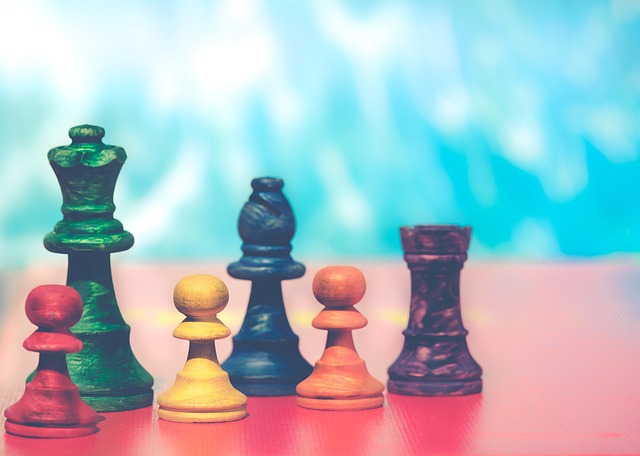Understanding Confidence and Its Importance
Confidence is a powerful emotional state. It shapes how you perceive yourself and how others perceive you. Many people typically associate confidence with self-esteem, yet they are not the same. Self-esteem relates to the intrinsic value you place on yourself, whereas confidence refers to your ability to believe in your skills or capabilities in specific areas. Building confidence can significantly enhance your personal development journey.
Moreover, when you feel confident, you make decisions more easily. You might find it easier to engage with others, pursue goals, and handle challenges. So, how do you build this essential trait? It requires a persistent effort, self-reflection, and a willingness to step out of your comfort zone. The journey is both rewarding and transformative. To start, it’s crucial to understand the various dimensions of personal development that can lead to boosted confidence.
Setting SMART Goals for Personal Development
Setting clear and specific goals can serve as a powerful catalyst for building confidence. The SMART criteria can guide you in establishing and pursuing these goals. SMART stands for Specific, Measurable, Achievable, Relevant, and Time-bound. When you apply this framework effectively, you create a clear path toward achievement.
For instance, instead of saying, “I want to improve my public speaking,” you could set a goal such as, “I will attend a public speaking workshop and practice my speech in front of friends by next month.” This version provides clarity and a timeline. Each time you achieve a goal, no matter how small, your confidence in your abilities grows. You begin to trust yourself and recognize your potential for overcoming challenges.
Moreover, these small accomplishments act as stepping stones. They build a solid foundation on which to tackle larger, more challenging objectives. As you make progress, you will notice how your confidence levels rise. You might even find new interests along the way that further enrich your personal development experience. It’s essential to celebrate these victories, as the more your confidence expands, the further you can push your boundaries. Remember, every achievement counts!
The Role of Self-Reflection in Personal Growth
Self-reflection is a vital aspect of personal development that can significantly enhance self-esteem. It allows you to take a step back and evaluate your experiences, actions, and emotions. Engaging in regular self-reflection can unveil patterns of behavior that either support or hinder your confidence levels. You might wonder how to cultivate this habit in a meaningful way.
Consider setting aside time each week for reflection. During this time, ask yourself key questions. What were my successes this week? What challenges did I face, and how did I respond? Did I step out of my comfort zone? By documenting these thoughts in a journal, you can track your progress over time. This practice fosters a deeper awareness of your strengths and weaknesses.
Furthermore, self-reflection encourages a growth mindset. When you recognize your past shortcomings, you view them as opportunities for improvement rather than failures. As a result, your confidence in the ability to learn and grow strengthens. Understanding that challenges are a part of life’s journey allows you to approach new situations with a more assured demeanor. You start witnessing that mistakes aren’t the end but rather stepping stones toward improvement.
Engaging in Continuous Learning
Continuous learning plays a significant role in personal development and building confidence. When you commit to expanding your knowledge and skills, every new piece of information becomes another element in your confidence toolbox. Education comes in various forms: formal classes, online courses, self-study, or even learning from experiences. The key is to remain curious and open-minded.
Consider starting with topics that genuinely interest you or areas where you feel less confident. For instance, if public speaking intimidates you, why not take a course that focuses explicitly on this skill? The more you learn, the more you empower yourself. Cultivating knowledge also contributes to a richer self-concept, which in turn fosters improved self-esteem. When you understand a subject deeply, your discussions become more engaging, and you can share your insights with others, further bolstering your confidence.
Moreover, continuous learning is not confined to formal educational settings. You can learn from podcasts, books, or by networking with knowledgeable individuals. Engaging in discussions, asking questions, and challenging ideas contributes to intellectual growth. Remember, confidence grows when you possess substantial knowledge in an area. As you accumulate skills and experiences, the triumphs add layers to your self-worth and lead to a stronger belief in your abilities.
Practicing Positive Self-Talk and Visualization
The internal dialogue you maintain plays a significant role in building confidence. Positive self-talk can counteract negative thoughts and self-doubt. Instead of critiquing yourself, encourage yourself with supportive affirmations. For example, instead of saying, “I can’t do this,” reframe it to, “I am capable of achieving this.” Such simple shifts can change your entire perspective. To add to this, visualization can serve as a complementary technique.
Visualization involves imagining yourself succeeding in specific situations. Picture yourself walking onto a stage confident and poised, delivering a flawless presentation. Engaging in this mental rehearsal enables you to create a sense of familiarity. This practice forms a bridge between your aspirations and reality, thus enhancing your actual performance and confidence. You prepare your mind to be ready for success.
In conjunction with visualization and positive self-talk, keep an eye on your achievements. Create a success list and refer to it whenever you experience self-doubt. Remembering how far you’ve come and the hurdles you’ve already overcome strengthens your self-esteem. The combination of these techniques cultivates a resilient mindset. Resolving to focus on your strengths further affirms your credibility, and with practice, you will find your confidence soaring over time.
Building a Supportive Network
No personal development journey is complete without surrounding yourself with supportive individuals. The people you interact with can shape your confidence significantly. Seek out relationships with those who uplift you and encourage your aspirations. Whether it’s friends, family, mentors, or colleagues, a supportive network amplifies your positive attributes and helps mitigate doubt.
Consider engaging in communities that align with your interests or goals. Support groups, workshops, and social clubs provide excellent avenues for personal growth. Sharing your experiences with like-minded individuals can be validating. Often, you’ll find that others face similar challenges, which can enhance your sense of belonging and provide motivation. Participating actively in discussions not only enriches your knowledge but also strengthens your interpersonal skills, contributing to greater confidence.
Furthermore, surrounding yourself with positive role models can inspire you. Observe how they navigate challenges and apply their strategies to your life. You will often find that people who seem confident also faced their struggles. Their journeys can serve as a roadmap for your development. Building relationships with those you admire creates accountability, as they can provide constructive feedback and encouragement along the way. Ultimately, forging strong connections leads to a richer, more confident self.
Facing Fears and Embracing Challenges
At some point, fear will rear its head during your personal development journey. Overcoming fear is crucial for building confidence. Facing challenges pushes you beyond your comfort zone, which is where growth occurs. Often, people have a natural tendency to avoid situations that induce anxiety. However, confronting these fears creates new opportunities for success and self-assurance.
Having a plan in place can ease this daunting process. Start with smaller challenges that are manageable and gradually increase the difficulty. For instance, if you dread public speaking, begin by speaking in front of a small group of friends. As you become comfortable with each step, your confidence will grow, preparing you for larger audiences. This incremental approach helps to lessen anxiety while reinforcing your capabilities.
Remember, failure does not equate to the end of your journey. Instead, view every setback as a lesson. Each experience, whether successful or not, contributes to your growth. When you learn to embrace failure, your confidence receives a significant boost. You realize that you can overcome any setback and emerge even stronger. This shift in mindset is empowering, fostering a pathway toward continuous personal development.
Conclusion: Lifelong Development for Confidence
In summary, building confidence through personal development is an ongoing journey. It demands commitment, consistency, and self-compassion. By setting smart goals, engaging in self-reflection, pursuing continuous learning, practicing positive affirmations, building supportive networks, and facing fears, you cultivate a deep-rooted confidence that empowers every aspect of your life. Over time, this newfound strength does not merely build confidence; it reshapes your entire narrative, allowing you to pursue your dreams unabashedly and with firm belief in your capabilities. Confidence isn’t just a destination; it’s an endless pursuit of becoming your best self.
FAQ
1. How long does it take to build confidence through personal development?
Building confidence is a personal journey that varies for each individual. It typically involves consistent effort over time. Some may observe improvements in weeks, while others may take months. Focus on small, consistent steps.
2. Can self-help books really help improve confidence?
Yes, self-help books can provide valuable insights and strategies for overcoming challenges and enhancing confidence. They often offer practical exercises that can aid in your personal growth journey.
3. Is it necessary to seek professional help for building confidence?
While many find success through self-guided methods, seeking professional help, such as therapy or coaching, can provide additional support and strategies tailored to your needs.
4. What role does body language play in confidence?
Body language significantly affects how others perceive you and how you perceive yourself. Adopting open, confident body language can reinforce self-assurance and positively influence interactions.
5. How do I maintain confidence after achieving my goals?
To maintain confidence, continue setting new challenges and goals. Embrace lifelong learning and reflect regularly on your journey. Recognizing your growth and progress helps sustain confidence over time.



